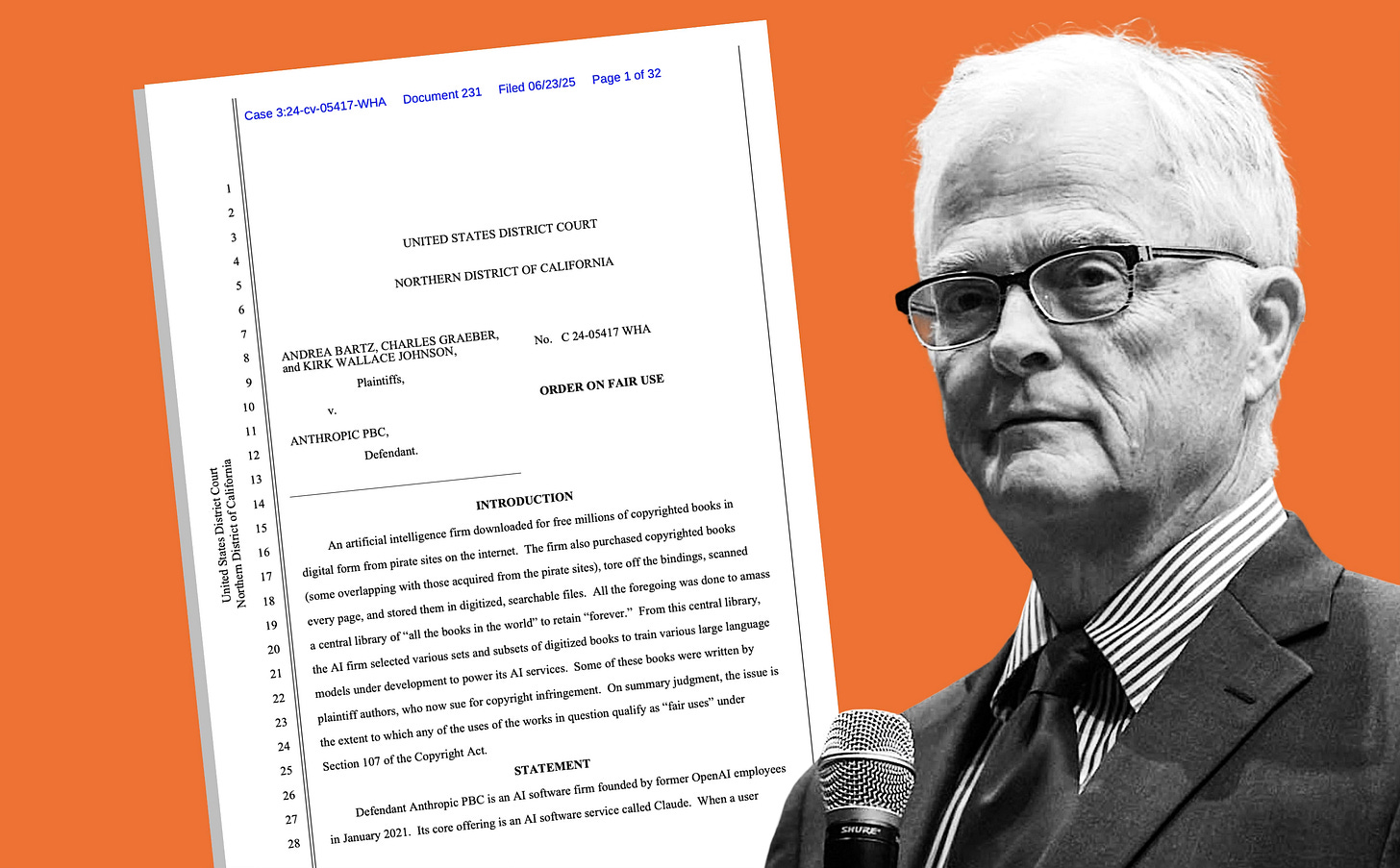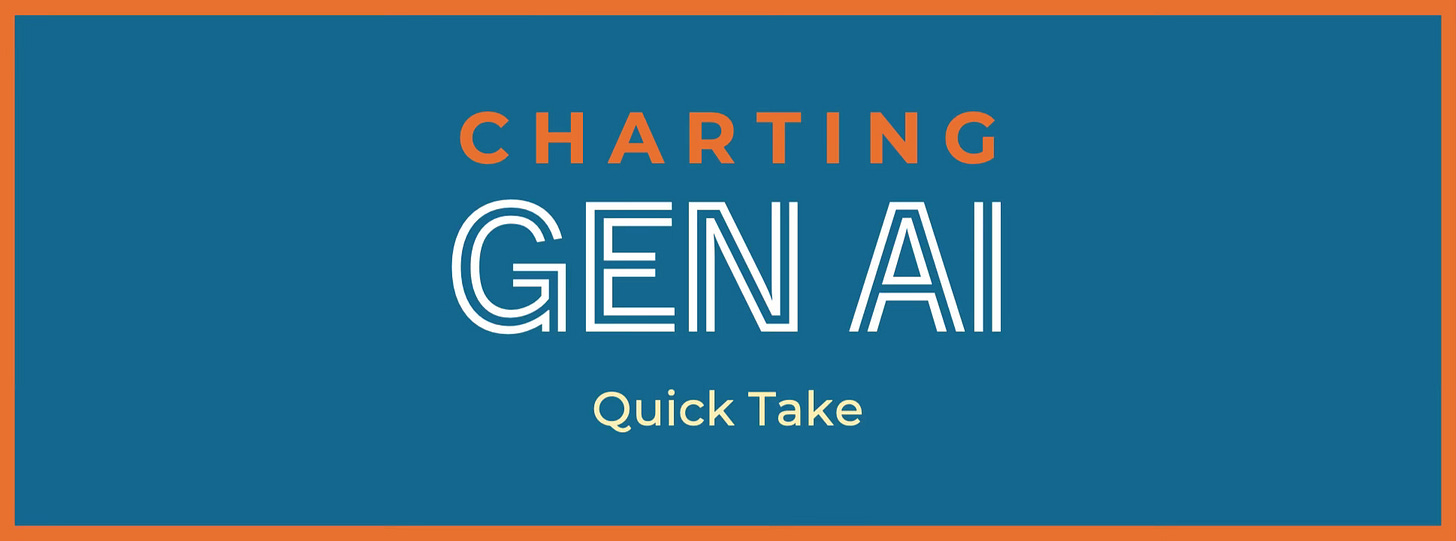Judge sides with Anthropic in pivotal fair use ruling but hands victory to authors on use of pirated books to train AI
Technology is the 'most transformative many of us will see in our lifetimes' he says
WHAT’S HAPPENED?

US DISTRICT JUDGE William Alsup has issued a landmark summary judgment stating that AI start-up Anthropic’s unauthorised use of purchased books to train its generative models did not break US copyright law. However, Judge Alsup also ruled that Anthropic’s storage of over 7 million copies of pirated books used to “build a central library” was not justified by the US Copyright Act’s fair use exception and said a trial would decide the resulting damages.
Judge Alsup issued his pivotal ruling in the complaint filed against Anthropic last year by authors and journalists Andrea Bartz, Charles Graeber and Kirk Wallace Johnson, plus others who joined the class action. Their lawsuit accused Amazon-backed Anthropic of “brazen” copyright infringement saying it downloaded “known pirated versions” of their works, “made copies of them, and fed these pirated copies into its models”. The authors further accused Anthropic of taking “multiple steps to hide the full extent of its copyright theft”.
In his 32-page ruling Judge Alsup said Anthropic had used both pirated books and those it had purchased to “amass a central library” which it used to train its large language models (LLMs). All of Anthropic’s copying took place without the authors’ consent, said the judge, who’s also a published author. Datasets included Books3, an online library of 196,640 titles that Anthropic co-founder Ben Mann “knew had been assembled from unauthorised copies of copyrighted books — that is, pirated”, as well as the notorious LibGen dataset and the Pirate Library Mirror, a vast collection of books “which Anthropic knew had been pirated”.
After considering the four factors that courts need to consider when deciding fair use, Alsup sided with Anthropic on the use of copied works to train LLMs powering its Claude family of chatbots, saying the technology “was among the most transformative many of us will see in our lifetimes”.
Alsup further agreed that the use of purchased books to create copies was also justified. But he insisted downloaded pirated copies to create a central library wasn’t justified, even if Anthropic had “later bought a copy of a book it earlier stole off the internet” and hadn’t used some of the copies for generative model training.
WHY SHOULD WE CARE?
✨ Judge Alsup has won the race to issue the first substantive ruling on copyright infringement and fair use in the era of generative AI. His summary judgment will be hailed as a victory by both sides. AI developers will seize on his reference to transformative fair use, the often-cited defence of the hi-techs who argue their LLMs generate something new. However, Alsup’s ruling that the use of pirated content cannot be justified will be cheered by the creator camp. Judge Alsup made no reference to the US Copyright Office’s provisional report which last month stated that “the copying of expressive works from pirate sources in order to generate unrestricted content that competes in the marketplace, when licensing is reasonably available, is unlikely to qualify as fair use” — even though his ruling chimes with that view. AI copyright watchers are now eagerly awaiting another fair use summary ruling in the same San Francisco courtroom. Last month fellow US district judge Vince Chhabria said he was close to issuing a summary judgement that the training of AI models on copyrighted works without consent is not covered by fair use. He’s overseeing the copyright infringement lawsuit filed by authors including Richard Kadrey, Sarah Silverman and Christopher Golden who accuse Meta of training its LLM on pirated copies of their books contained in the LibGen dataset. It’s a reminder that fair use is decided on a case-by-case basis — but Judge Alsup’s ruling is likely to be influential since many AI lawsuits working their way through the courts involve datasets built on troves of pirated content.
RELATED:
◾️Further reaction and all the key developments that threaten to reshape the global AI regulatory landscape will be in this Friday’s Weekly Newsletter.








